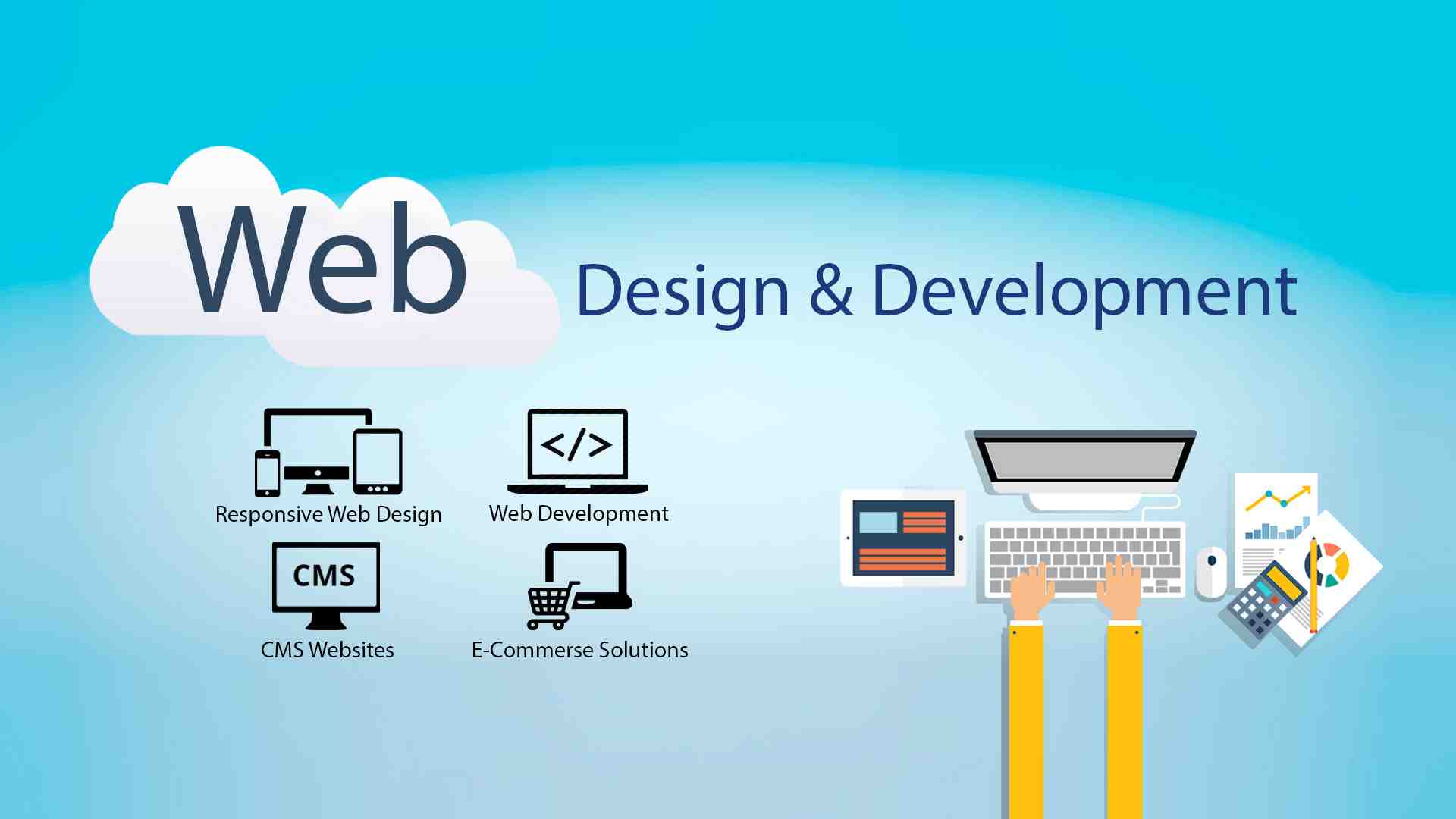Guide to Front End Web Development || Front End Web Development Services
Introduction of front end web development:
Front end web development is the practice of creating user-facing elements of a website or web application. This includes the layout, design, and functionality that users interact with directly. It is the bridge between the visual design of a website and the underlying technical infrastructure. Front end web developers use languages such as HTML, CSS, and JavaScript to create and improve the user experience.
The field of front-end web development is constantly evolving, with new technologies and frameworks emerging regularly. It is essential for front end developers to stay up-to-date with the latest trends and best practices to deliver the best possible user experience. They must also have a keen understanding of user behavior, as well as search engine optimization (SEO) and accessibility.
Importance of Front End Web Development in today's digital landscape:
In today's digital landscape, the importance of front end web development cannot be overstated. With more and more businesses moving online, having a well-designed and user-friendly website is crucial for success. Front end web developers play a vital role in creating a seamless and enjoyable experience for users, which can ultimately lead to increased conversion rates and revenue for businesses.
One of the key advantages of front end web development is its ability to improve user experience. A well-designed website with a clear and intuitive layout, easy navigation, and responsive design across different devices can greatly enhance the user's journey. This can lead to increased engagement, higher conversion rates, and ultimately, more revenue for businesses. Additionally, front end developers also play a crucial role in making sure a website is accessible to users with disabilities, which is an important aspect of web design
Search engine optimization (SEO) is another key area where front end web development plays a vital role. By optimizing the code and content of a website, front end developers can ensure that it is easily readable by search engines, resulting in higher rankings and more visibility in search engine results pages (SERPs). This can greatly benefit businesses by driving more traffic to their website and increasing the chances of being found by potential customers.
Key skills required for Front End Web Development:
Front end web development is a dynamic field that requires a diverse set of skills to be successful. As technology continues to evolve, front end developers must stay up-to-date with the latest trends and best practices to deliver the best possible user experience. Here are some key skills that are essential for front end web development:
- HTML and CSS: These are the foundational languages of the web. HTML (Hypertext Markup Language) is used to create the structure of a website, while CSS (Cascading Style Sheets) is used to add styling and layout. Understanding how to use these languages effectively is crucial for creating well-designed and user-friendly websites. Bootstrap and tailwind CSS are two most famous frameworks of CSS that are being used in front end development services.
- JavaScript: JavaScript is a programming language that is commonly used to create interactive elements on a website. From simple form validation to complex animations, JavaScript is a versatile language that is essential for creating dynamic and engaging user experiences. AngularJs, ReactJs and VueJs are three famous frameworks that are being used in front end web development services
- Responsive Design: With the increasing use of mobile devices to access the internet, it's essential for front end developers to understand how to create websites that are responsive across different screen sizes and resolutions. This means creating layouts that adapt to the user's device, ensuring a seamless experience.
- Search Engine Optimization (SEO): SEO is an essential aspect of front end web development as it helps to increase the visibility of a website in search engine results pages (SERPs). Understanding the basics of SEO such as keyword research, meta tags, and site structure, can help front end developers to improve the visibility of a website, driving more traffic and revenue.
- Accessibility: Making a website accessible to users with disabilities is an important aspect of front end web development. Understanding how to create accessible web pages using techniques such as ARIA roles, and providing alternative text for images, can help to ensure that a website is usable for everyone.
- Cross-browser compatibility: With the many different web browsers and versions available, ensuring a website looks and behaves consistently across different browsers is an important skill for front end developers. They must understand how to work around browser-specific issues and ensure that a website looks and behaves the same way in all browsers.
- Problem-solving: Front end web development often requires finding creative solutions to complex problems. Being able to think critically and troubleshoot issues is an important skill for front end developers.
In conclusion, front end web development is a dynamic and ever-changing field that requires a diverse set of skills to be successful. Understanding the basics of HTML, CSS, JavaScript, responsive design, SEO, accessibility, cross-browser compatibility, and problem-solving is essential for creating effective and engaging websites that drive traffic, conversions, and revenue.
Popular front end web development technologies and frameworks include:
- HTML and CSS: These are the foundational languages of the web. HTML (Hypertext Markup Language) is used to create the structure of a website, while CSS (Cascading Style Sheets) is used to add styling and layout.
- JavaScript: JavaScript is a programming language that is commonly used to create interactive elements on a website. JavaScript frameworks such as AngularJS, ReactJS, and Vue.js are popularly used to build complex web applications.
- Bootstrap: Bootstrap is a popular front-end framework that allows developers to create responsive and mobile-first websites quickly. It includes pre-designed UI components and CSS styles that can be easily customized.
- Foundation: Foundation is another popular front-end framework that is similar to Bootstrap, but it is more focused on creating responsive and accessible websites.
- Material-UI: Material-UI is a front-end framework that is based on Google's Material Design Guidelines. It allows developers to create websites that have a modern and consistent look and feel.
- Bulma: Bulma is a modern CSS framework based on Flexbox, it's simple, lightweight, and easy to use.
- Semantic UI: Semantic UI is a front-end framework that is focused on creating websites with a semantic structure. It allows developers to create websites that are easy to understand and navigate.
- Tailwind CSS: Tailwind CSS is a utility-first CSS framework that is used to build responsive and customizable user interfaces.
How to choose the right Front End Web Development service provider:
Choosing the right front end web development service provider can be a daunting task, but by considering the following factors, you can make an informed decision:
- Experience and expertise: Look for a service provider with a proven track record of delivering high-quality front-end development projects. Check their portfolio and read client testimonials to get a sense of their expertise and experience.
- Technical skills: Make sure the service provider has the technical skills and expertise required for your project. For example, if you are looking for a responsive web design, ensure that the service provider has experience working with responsive design technologies.
- Communication and collaboration: Good communication and collaboration are essential for the success of any project. Look for a service provider that is responsive, easy to communicate with, and willing to work closely with your team.
- Project management: A good project management process is essential for keeping the project on track and ensuring that deadlines are met. Look for a service provider that has a well-defined project management process in place.
- Scalability: Your business needs may change over time, so it's essential to choose a service provider that can scale their services to meet your changing needs.
- Cost: Compare the cost of different service providers and make sure that you are getting value for your money. Remember, the cheapest option may not always be the best.
- Support and maintenance: Look for a service provider that offers ongoing support and maintenance to ensure that your website is up-to-date and running smoothly.
- Reputation: Look for a service provider with a good reputation in the industry. Check for their online presence, reviews and testimonials.
By considering these factors, you can make an informed decision and choose a front end web development service provider that will help you achieve your goals and deliver a high-quality website.
If you are in need of front end web development services, then look no further. Our team of experienced developers is equipped with the latest technologies and frameworks to deliver high-quality, visually appealing, and user-friendly websites. Whether you are looking for a responsive web design, a new website, or a redesign of an existing one, we can help. Don't hesitate to contact us to discuss your project and see how we can help bring your vision to life.



